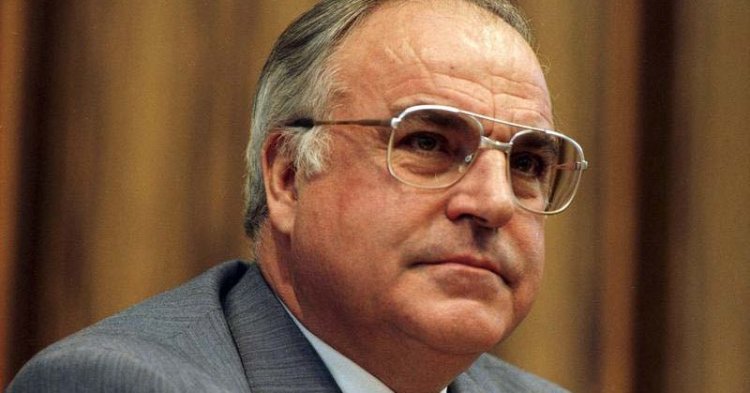Kohl swiftly rose to power through the ranks of the West-German Christian Democratic party, the same group that Angela Merkel is a member of, and became Chancellor in 1982. Throughout his early tenure as leader of Germany he sought to draw nearer to East Germany, conducting a policy known as Ostpolitik, the lowering of tensions between East and West, which had previously been opposed by the Christian Democrats.[2] He invited East German leaders for visits, travelled to Moscow to appeal to Russian leaders about German reunification, and finally signed an economic and diplomatic treaty with the East German government in 1990 after the Berlin Wall had collapsed.
Kohl then went on to convince Russian leader Mikhail Gorbachev to withdraw the mass of Russian troops stationed East Germany, and on October 3rd 1990, the German dream of reunification was realised. The German Democratic Republic was disbanded and its five states federalised into the German Federal Republic. Germany was one again. Kohl’s political ingenuity and, at times, ruthless slyness, had contributed hugely to this process.
Kohl defeated opposition to a united Germany from abroad with the help of US President George Bush, who he later called his “greatest ally” on the road to German unification.[3] Kohl then immediately reinvigorated the East German economy, at a significant cost to the economic progress made by the western part of the country over the previous forty years.
And so, Germany was unified, but this was only part of the vision Kohl had. A unified Germany had, in his view, to be a part of a greater unified continent. Kohl maintained extremely close ties with the French, notably with French president Mitterand, which created a solid basis on which to build a continental union. The Guardian writes: “Both men remembered the bad old times. Both reasoned that Europe would only be safe and secure if its two leading powers and its most frequent antagonists, France and Germany, worked in tandem.”[4]
An architect of the Maastricht Treaty of 1992, Kohl was directly responsible – at least in part – for the introduction of the euro, and for the further integration of European member states. This treaty consolidated the European Economic Community and turned it into the European Union, and from that point on further integrational measures were taken.
Kohl, therefore, was a prime architect of European integration, and it is not without reason that he was awarded honorary European citizenship by various European heads of state and government of the European Council in 1998. Jean-Claude Juncker, current President of the European Commission, has proposed that, as an honorary European and a prime mover of EU integration, the first official European state funeral should be held for Kohl.
This would certainly do honour to Kohl’s utterly valuable role, and remind all of us how the actions of individual people can have a great impact on the future of our united continent.
Sources
[1] Taggesschau (2017) Porträt Helmut Kohl: Der Schwarze Riese. 16th June. Available from http://www.tagesschau.de/inland/kohl-157.html [Accessed 18/06/2017]
[2] https://en.wikipedia.org/wiki/Helmut_Kohl#Third_cabinet
[3] BBC News (2017) Obituary: Helmut Kohl. 16th June. Available from: http://www.bbc.co.uk/news/world-europe-11477991 [Accessed 18/06/2017]
[4] Tisdall, S. (2017) Helmut Kohl: Leader who united Europe as well as Germany. The Guardian, 16th June. Available from https://www.theguardian.com/world/2017/jun/17/helmut-kohl-leader-who-united-europe-as-well-as-germany [Accessed 18/06/2017]


Follow the comments: |
|
